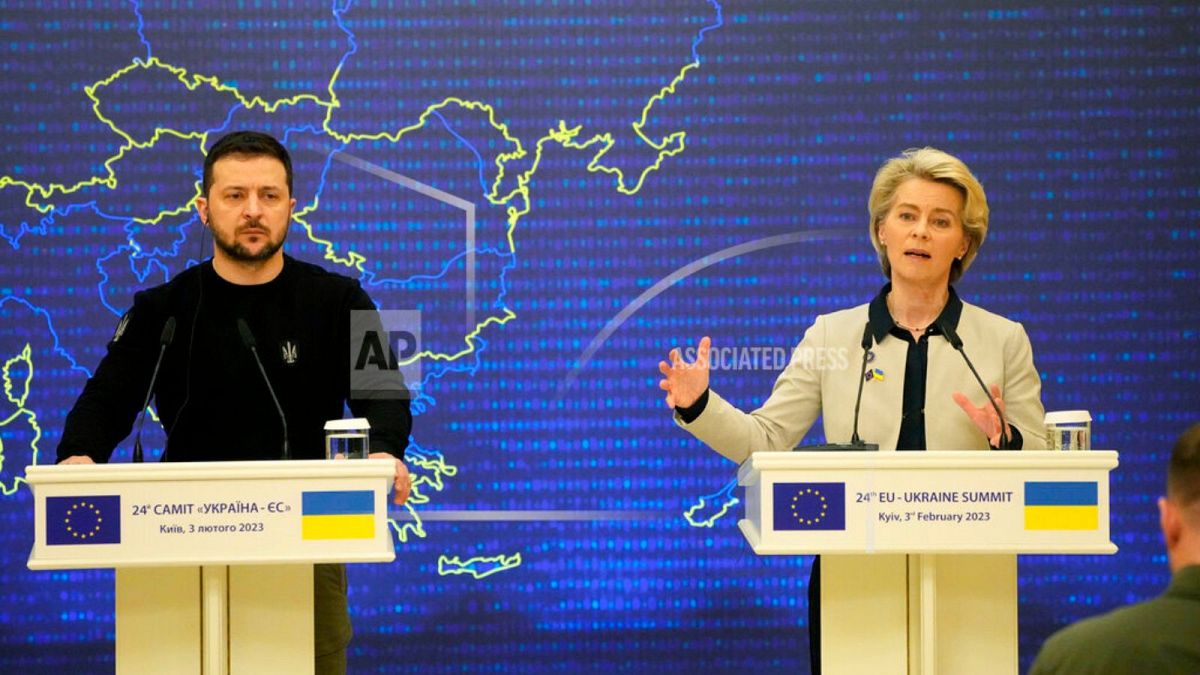Some say Ukraine's new media law will combat Russian disinformation, others denounce an affront to freedom of the press.
A new Ukrainian media law expanding the powers of the nation’s media regulator has sparked a heated debate. Some say it will combat Russian disinformation, others denounce it as censorship.
The law “On Media”- first presented by President Zelenskyy in 2019 - came into force on 31 March. Ukraine’s media standards previously revolved around six media laws which have remained largely unreformed since 1991. Media reform is a key requirement which Ukraine must fulfil as an official EU candidate state.
What does the bill do?
The decree imposes stringent transparency standards, pushing media outlets to disclose clear information on their stakeholders and owners.
“This is a positive move towards limiting the influence of stakeholders and owners on editorial independence,” Marianna Perebenesiuk, Ukraine project lead for Reporters Sans Frontières, told Euronews.
Lawmakers have also claimed the bill will facilitate the battle against Russian disinformation.
The regulator also holds the power to block both state-registered and unregistered online media after multiple violation notices. Critics of the measure include international journalists’ unions - such as the European Federation of Journalists and the Committee to Protect Journalists - as well as national unions.
Reception in Ukraine
A month after the law came into effect, is it working as expected?
Dr. Serhiy Shturkhetskyy, chairman of Independent Media Trade Union of Ukraine thinks not.
“I am doubtful as to how the National Council for Television and Radio will maintain political independence, given that the body has been handed unprecedented powers in the field of media regulation,” he said in an interview with Euronews.
Half of the members of the state media regulatory body are appointed by the Ukrainian President and the other half by Parliament. The fact that President Zelenskyy’s Servant of the People party currently commands a Parliamentary majority has been posited as a further obstacle to the regulator’s independence.
However, certain platforms welcomed the law.
“I am glad that the war did not halt the process of passing the law,” said Galina Petrenko, director of Detector Media, a media watchdog and NGO. Detector Media has moved swiftly to begin registering its activities.
Edging towards European integration
The European Commission welcomed the passing of the law, stating that the reform aligns with the EU’s Audiovisual Media Services Directive. Ukraine formally applied for membership to the European Union in February 2022, four days after Russia’s full-scale invasion. The nation was granted formal candidate status in June of that year.
European Commission spokesperson, Ana Pisonero Hernandez, told Euronews: “The Council of Europe and Commission provided a series of recommendations to Ukrainian authorities which they took into account - in order to implement progress and ensure the independence of the media regulator.”
Over 282 pages of amendments have been made to the 2019 draft law.
Nevertheless, the Commission also underlined that “some media aspects of the law still need to be addressed”, in order to ensure “economic competitiveness in the media sphere, as well as media freedom and pluralism”.
Opponents of the law denounce the use of European integration as a bargaining chip used to forcefully push through the law.
“If you are against this law, you are presented as being against European integration”, said Dr. Serhiy Shturkhetskyy, chairman of the Independent Media Trade Union of Ukraine.
He underlined that opposition to the law does not equate to hostility to Europe, adding “much of the media community wishes to join the European community”.
